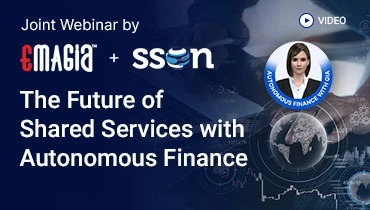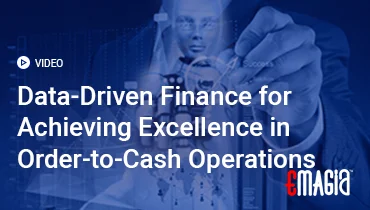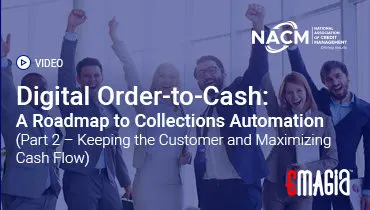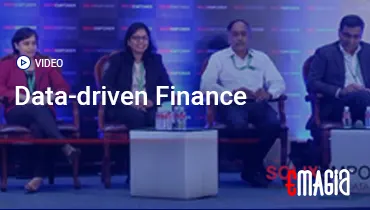In the rapidly evolving landscape of digital finance, electronic checks (eChecks) have emerged as a pivotal tool, offering a blend of traditional check familiarity with modern technological advancements. This article delves deep into the myriad advantages of eChecks, providing a comprehensive understanding of their benefits over traditional payment methods.
Introduction to Electronic Checks
Electronic checks, commonly known as eChecks, are digital versions of traditional paper checks. They facilitate the transfer of funds from a payer’s bank account to a payee’s account through the Automated Clearing House (ACH) network. By leveraging the internet and secure systems, eChecks offer a streamlined, efficient, and secure method of payment.
Enhanced Efficiency and Speed
Rapid Processing Times
eChecks significantly reduce the time taken for transactions to clear. Unlike paper checks, which can take several days to process, eChecks often clear within 24 to 48 hours, expediting cash flow for businesses and individuals alike.
24/7 Availability
The digital nature of eChecks allows for transactions to be initiated and processed at any time, including weekends and holidays, providing unparalleled convenience.
Automated Recurring Payments
eChecks support automation, enabling users to set up recurring payments for regular expenses such as subscriptions, utilities, and rent, ensuring timely payments without manual intervention.
Superior Security Measures
Encryption Protocols
eChecks utilize advanced encryption standards, such as AES, to protect sensitive financial data during transmission, safeguarding against unauthorized access.
Multi-Factor Authentication
To further enhance security, eChecks often incorporate multi-factor authentication, requiring users to verify their identity through multiple methods, reducing the risk of fraud.
Fraud Detection Systems
Financial institutions employ sophisticated fraud detection mechanisms to monitor eCheck transactions, identifying and preventing suspicious activities promptly.
Cost-Effective Transactions
Reduced Processing Fees
Compared to credit card transactions, eChecks typically incur lower processing fees, making them a cost-effective solution for businesses handling numerous transactions.
Elimination of Physical Materials
By transitioning to eChecks, businesses can eliminate expenses related to paper checks, envelopes, postage, and storage, leading to significant cost savings.
Simplified Record-Keeping and Auditing
Digital Transaction Records
eChecks automatically generate digital records of transactions, facilitating easy storage, retrieval, and management of financial data for accounting and auditing purposes.
Enhanced Transparency
The digital trail left by eCheck transactions enhances transparency, allowing businesses to monitor cash flow and financial activities with greater clarity.
Environmental Sustainability
Reduction in Paper Usage
Adopting eChecks contributes to environmental conservation by reducing the reliance on paper, thereby decreasing deforestation and waste.
Lower Carbon Footprint
Eliminating the need for physical transportation of checks reduces carbon emissions, aligning with eco-friendly business practices.
Broader Accessibility
Inclusive Financial Transactions
eChecks require only a bank account, making them accessible to individuals without credit cards, thereby promoting financial inclusion.
Global Reach
The digital nature of eChecks facilitates cross-border transactions, enabling businesses to engage with international clients seamlessly.
Integration with Business Systems
Seamless Software Integration
eChecks can be integrated with various accounting and financial management software, streamlining operations and reducing manual data entry.
Enhanced Operational Efficiency
By automating payment processes, businesses can allocate resources more effectively, focusing on core activities rather than administrative tasks.
Mitigation of Chargeback Risks
Unlike credit card payments, eChecks are less susceptible to chargebacks, providing businesses with more predictable revenue streams and reducing potential disputes.
Compliance with Regulatory Standards
eChecks adhere to stringent regulatory frameworks, such as the Electronic Fund Transfer Act (EFTA) and the Federal Reserve’s Regulation E, ensuring secure and lawful financial transactions.
Facilitating a Transition to a Checkless Society
The adoption of eChecks is a step towards a checkless society, promoting digital transactions that are faster, more secure, and environmentally friendly.
How Emagia Enhances eCheck Processing
Emagia offers advanced digital payment solutions that streamline eCheck processing. By integrating AI-driven analytics and automation, Emagia enhances transaction speed, security, and compliance, providing businesses with a robust platform for managing electronic payments efficiently.
Frequently Asked Questions
What is an electronic check?
An electronic check, or eCheck, is a digital version of a traditional paper check, facilitating the transfer of funds through electronic means via the ACH network.
How secure are eChecks?
eChecks employ advanced security measures, including encryption and multi-factor authentication, to protect against fraud and unauthorized access.
Are eChecks cost-effective?
Yes, eChecks typically have lower processing fees compared to credit cards and eliminate the need for physical materials like paper, envelopes, and postage—making them a highly cost-effective payment method for both individuals and businesses.
How long does it take for an electronic check to clear?
Most eChecks clear within 24 to 48 hours. However, depending on the bank and transaction size, it may take up to 3–5 business days. This is still significantly faster than traditional paper checks.
Can eChecks be used for recurring payments?
Yes, one of the major advantages of electronic checks is the ability to schedule recurring payments, making them ideal for subscription services, memberships, and monthly bills.
Do I need special software to send or receive eChecks?
No special software is needed. Most banks and payment processors provide platforms or dashboards for eCheck transactions. However, businesses may benefit from integrating eCheck-compatible accounting or invoicing software.
Are there risks of fraud with electronic checks?
While no payment method is 100% risk-free, eChecks come with several built-in security features like encryption, authentication, and fraud detection systems to minimize risk.
Can businesses accept eChecks online?
Absolutely. Many eCommerce and invoicing platforms allow businesses to accept eChecks online, offering customers a secure and convenient alternative to credit cards.
What’s the difference between ACH payments and eChecks?
An eCheck is a specific type of ACH (Automated Clearing House) payment. All eChecks are ACH payments, but not all ACH payments are eChecks. eChecks specifically mimic the format and function of traditional paper checks.
Can international transactions be made using eChecks?
While eChecks primarily operate within the U.S., some payment providers do offer cross-border ACH capabilities. However, international compatibility is more limited than with credit cards or wire transfers.
Final Thoughts: Why Embracing Electronic Checks is a Smart Move
Electronic checks are transforming the way individuals and businesses conduct financial transactions. With faster processing, enhanced security, lower costs, and increased efficiency, the advantages of electronic checks are impossible to ignore. Whether you’re a small business owner looking to reduce payment friction or a large enterprise aiming for seamless integration across systems, eChecks offer a future-ready payment solution.
As digital transactions continue to dominate, adopting electronic checks today sets the foundation for smarter, greener, and more reliable financial operations tomorrow.
Ready to future-proof your payments? Start using electronic checks and experience the benefits firsthand.



